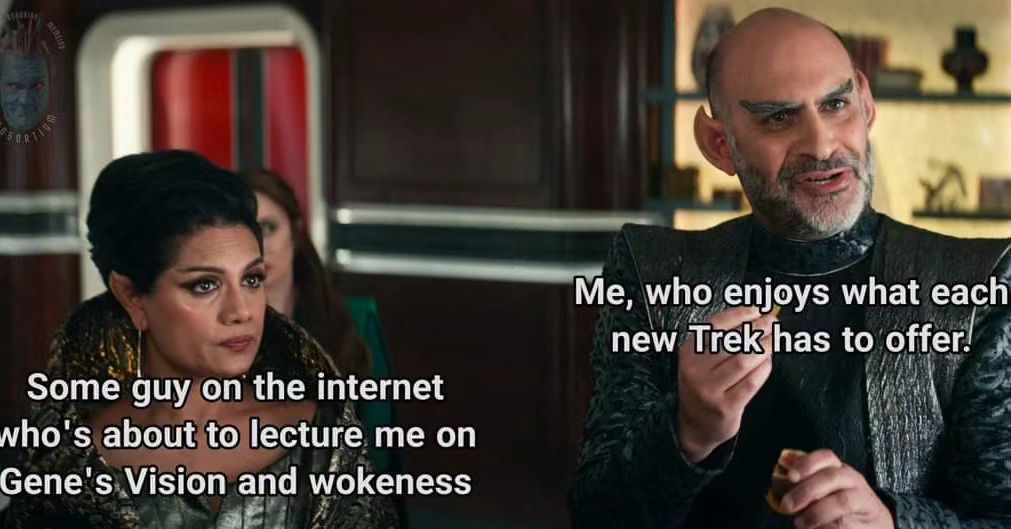
I'm Obviously a Naughty Little Bottom
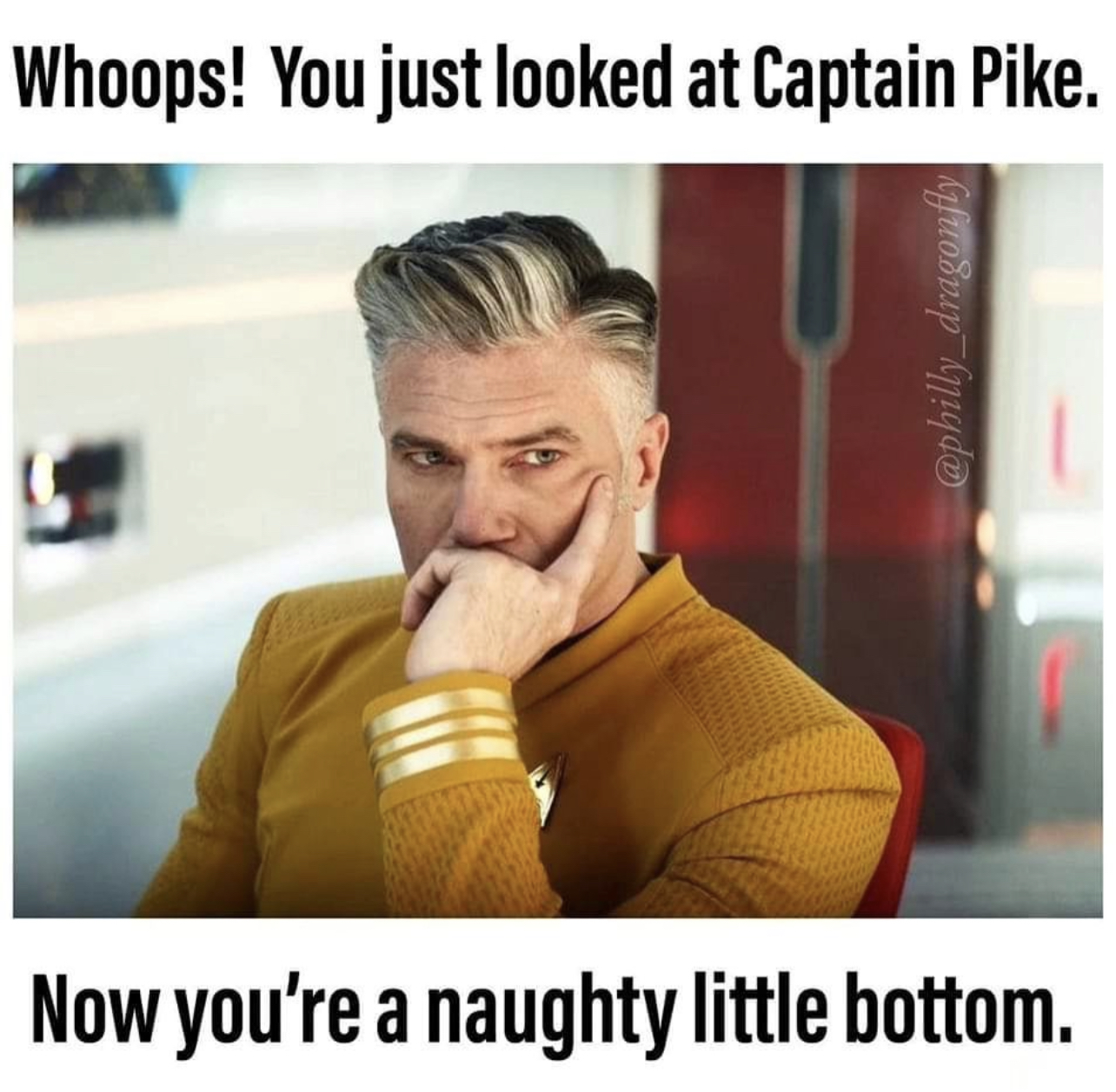
Right?
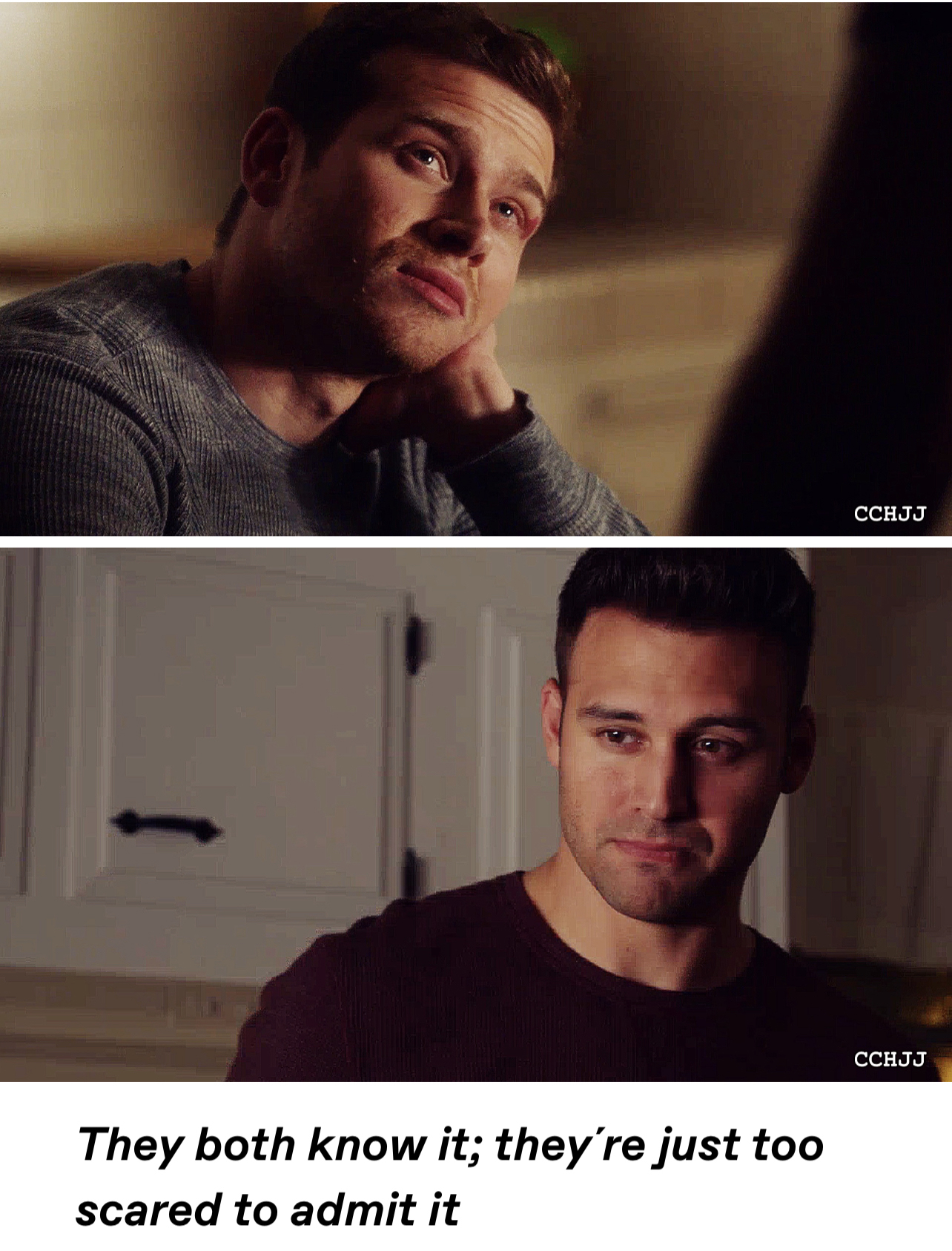
I seriously doubt the writers would ever take these two characters in that direction—despite the fact that all the signs are there and the actors themselves have said they'd be open to it. They've already got a lesbian couple on the show, so is it really needed?
But with Falchuk/ Murphy who knows?
Highly Recommended
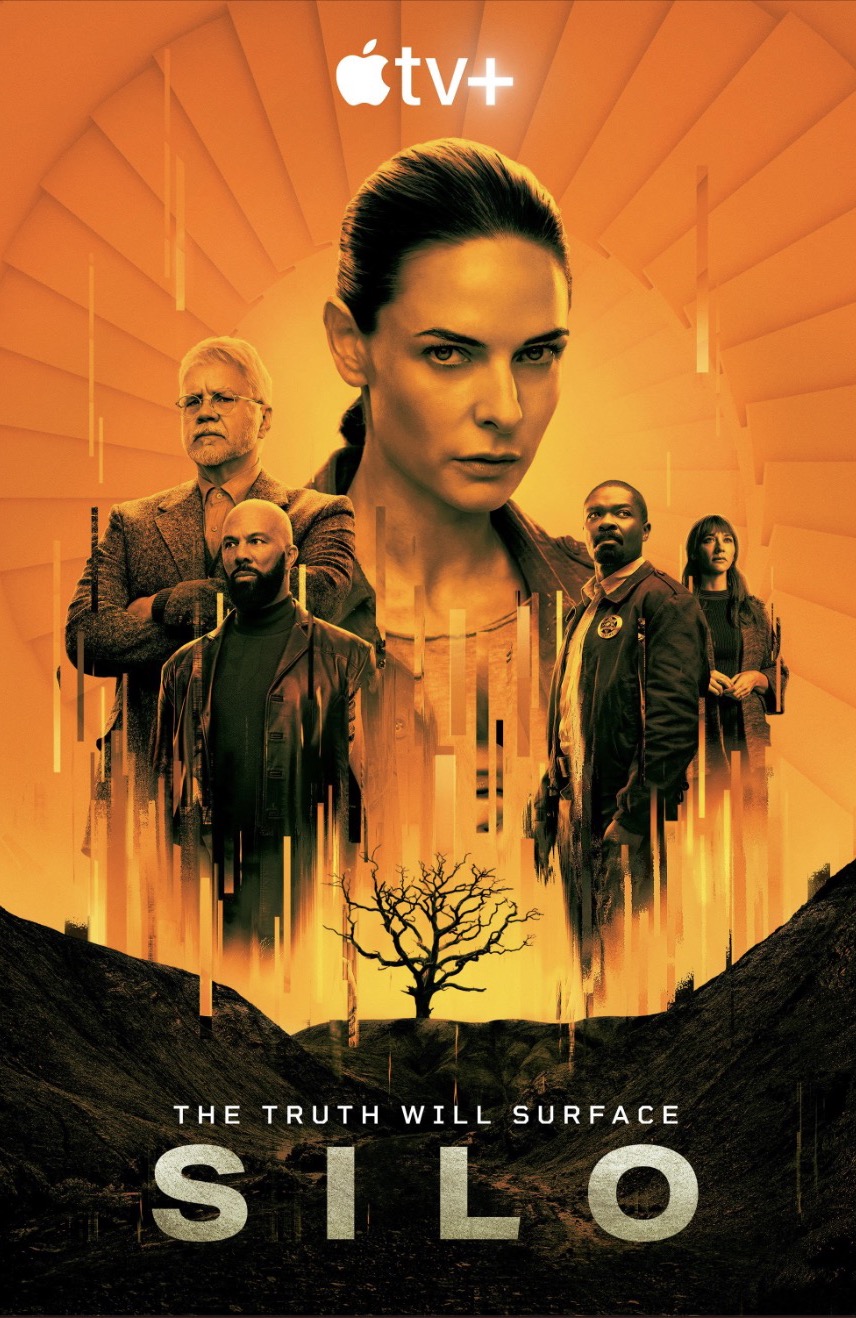
Have you seen any of it? It's the first story in a long time that's actually sent me in search of the source material because I need to know what comes next!
BTW, the soundtrack—although done by a completely different composer—is very Westworldly.
That Makes Two Of Us
A bit of Fringe slash for those so inclined:
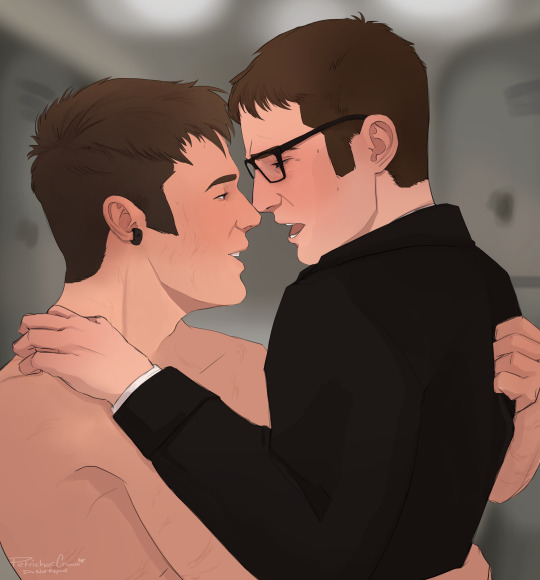
Captain Lincoln Lee has no idea how this happened.
He's being fucked so hard and fast by his own doppelganger—or doppelbanger—that his legs feel like jelly, his jaw aches and his ass feels sticky and slightly sore.
That's a lie. If he is completely honest with himself he does have an idea. And it's all his fault.
It all started because he'd teased his double, alternative, whatever you want to call him, just like he teased Liv on any day of the week. Except she wasn't here, the other Lincoln wasn't Liv, and he certainly wasn't anything like himself.
So instead of laughing it off or coming back with a sarcastic comment like Liv would have, or even sulking or looking upset like he had predicted him to, the other Lincoln had flipped him on his back in an unexpected martial arts move so quickly he barely had time to defend himself and could only react with a little surprised yelp.
"Hey! Get the fuck off me, Agent Lee," Captain Lee demanded, trying to maintain his authority despite being physically dominated by someone he'd clearly underestimated. He squirmed as Lincoln's deceptively toned frame straddled his upper thighs and pinned his hands down above his head, "now!"
The patronizing tone in which he spoke didn't work as well as it usually did or as he'd hoped it would. In actual fact it only seemed to have irritated the other Lincoln further and his grip on Lee's wrists had tightened as he leaned down closer over him.
"No, Captain Lee."
The other Lincoln had replied equally sarcastically through gritted teeth that accentuated his dimples. He jutted out his chin in defiance, his nostrils flaring and his face flushed with indignation. A slight sheen of perspiration shimmered on his skin that Lee found strangely attractive considering the man on top of him essentially had the same face that he did. Liv always said he was in love with himself but this would surprise even her. "Not until you apologize."
A shiver involuntarily shot up Lee's spine – it caused goosebumps to spread across his skin and his nipples to harden. He wasn't sure if it was because of the cornflower blue satin tie that hung from Lincoln's neck and tickled his skin through his thin white T-shirt as it dragged from his belly button to his sternum or how good it felt to be in a submissive position when being assertive and dominant was always expected of him.
"Don't take it so serious – Lee!' Captain Lee quipped. He huffed a nervous laugh, foolishly trying again to wriggle free from the restraints of the other man's body, only for him to tighten the grip and press his ass down on top of his thighs. He smirked, daring himself to call his double's bluff. "What are you going to do if I don't apologize?"
Part of him – the part that almost always won – wanted to laugh off and deny the inexplicable arousal he felt, making an unmistakable bulge in his beige cargo pants which he knew must now be obvious to the other Lincoln whose ass was straddling his thighs. He instinctively tried crossing his legs in a feeble attempt to disguise it, but he was completely confined between the navy polyester clad thighs of the other man. They were so close, he could feel the obstinate little warm puffs of breath from Lincoln's heaving chest against his cheek and smell the coffee he must've drunk before he'd crossed over as he leaned over him.
A few minutes ago he would have denied having sexual chemistry with himself but life it seems was full of surprises, and this was a big one. A big 200lb surprise.
Lee dared himself to briefly meet Lincoln's eyes beyond the faint reflection of his own face in his thinly framed spectacles. They were so dark, dilated with stubbornness, the sky blue iris was almost invisible. He could tell there was no way out and no chance the other Lincoln would release him and give in first.
His gaze imperceptibly lowered down to Lincoln's mouth and Lee watched entranced as the wet, rosy pink tip of Lincoln's tongue flickered out and dragged across his top lip revealing a glint of familiar white teeth before he bit down on his bottom lip and pouted again.
The urge to reach up to press his own mouth against the other man's lips consumed him, and against his own better judgement he strained his neck to reach up and meet Lincoln's mouth, on the pretence he'd be so disgusted or repelled he'd jerk away and loosen his grip enough that he could get away.
Except he didn't. The other Lincoln made the same little surprised yelp he'd made himself when he'd been flipped over but he didn't pull away, even when their teeth clashed. Instead he did the second thing that had surprised Lincoln in the last few minutes. He kissed him back. Hard.
Well, fuck.
The back of Lee's head hit the carpeted floor again, the rough nylon fibres making static in his hair like the electricity between them. It caused a groan to escape from his mouth which broke the spell and connection between them just as their tongues met.
Lincoln suddenly pulled away, scrambling to his feet wide-eyed and rubbed the evidence of their kiss off onto the back of his hand.
"W-wait, this isn't –" he heaved, shaking his head and staggering backwards in shock until he hit a chair that almost toppled over with the force, "w-we can't… we shouldn't be… I can't be…"
"What? What's wrong?" Lee asked, frowning and leaning up on his elbows to watch Lincoln who slumped down in the chair and looked up at the wall and ceiling, anywhere but at the man on the floor who not only looked like him but is essentially him and has a tent pole forming in the front of his cargo pants, much like the one his own trousers.
"What's wrong?… Are you INSANE?" Lincoln scoffed, followed by a little incredulous laugh. His eyes glistened like he was about to cry and he crossed his legs in embarrassment then motioned at the floor in front of him. "All of this is – it's crazy! For a start, you're me, or I'm you… a-a-and I'm not even gay!"
He blurted it out without thinking how ridiculous it sounded, which made Lee burst out laughing – because that was his Pavlovian reaction to everything stupid and this situation was really fucking absurd.
"Really? You sure about that?" Lee sat up fully, shuffled a little closer on his ass to Lincoln's leg and playfully nudged his shin with his elbow. "'Cause, uh, if I'm not mistaken you kissed me back and you've got a hard-on too, and that's kinda gay to me. You gotta be a little bit curious."
The first time they'd met and locked eyes on the pier, he'd felt like he was caught in a spell of something he'd never felt before. A beautiful contradiction of an intimate and intense feeling of recognition and familiarity but also disorientation, like it was an out of body experience – more than he'd expected to feel on seeing his counterpart despite the knowledge he existed.
As much as he tried to smother and asphyxiate the inner conflict of attraction and repulsion, looking at his double made it all the more addictive.
"But we were fighting…" It was a feeble argument but the only one left Lincoln could think of. He unwittingly flinched at the warmth of Lee's hand that lightly rubbed against his leg through the thin material of his trousers which seemed to make even more blood rush to his cock. Possibilities whirred through his mind at lightspeed making him feel light-headed and lose his grip on his reservations and inhibitions.
"So what?" Lee laughed again, his hand tentatively edging to the curve of Lincoln's knee. "Do you, uh, want me to apologise or do you want to punish me for calling you a name? I can call you another one, if it helps?
Lincoln looked down at Lee, whose wicked smirk spread across his face, melting any resolve or trepidation he felt. He couldn't remember the last time he smiled like that and wondered if he had ever looked that happy. Lee's eyebrows raised curiously at Lincoln's intense gaze that focused on his mouth and he subconsciously licked his lips. "What?"
"You – we, I guess – have a really pretty smile and a nice mouth."
Lincoln's voice was quiet but every word was deliberate and slow and loaded with intent. The air shifted between them suddenly like it does just before a lightning strike – charged and heavy and he shivered when the other man spoke.
"Thanks," Lee said, as his smile fell away and he leaned in boldly, just to make sure he fully understood. "You wanna fuck it."
It sounded like a statement rather than a question because he thought if they have the same body and the same mind, chances are they probably have the same fantasies, regardless of how much Lincoln wanted to deny it, and like most men the invitation of being sucked off is not something he'd turn down. Lincoln's eyebrows raised slightly as his eyes darkened again and met his gaze – the next words out of his mouth the third thing he did that surprised Lee.
"Are you offering?"
Well that escalated quickly.
Lee grinned again at the polite request spoken in the way that only Lincoln could, and he shifted to kneel in front of him without hesitation or breaking eye contact. He could tell from Lincoln's unrelenting and intense gaze that he wanted – needed – this. Roughly pushing Lincoln's knees apart, he ran his hands up the inside of his thighs, the thin polyester catching on his skin.
Edging closer and leaning back on his calves so his face lined up to the straining bulge behind Lincoln's suit pants, Lee teasingly ran his hand over it lightly before beginning to undo the belt buckle, the noise of leather moving through metal causing an illicit groan to escape Lincoln's mouth.
Suddenly reality came crashing down into Lincoln's mind and his trembling hands covered Lee's who slumped back, assuming Lincoln was getting second thoughts again before they even got started.
"W-wait, don't we need to use protection?" He shivered and asked considerately. The thoughtfulness inexplicably made Lee even more aroused.
"I'm clean, we get tested regularly as part of the physical exam at work. You?"
Lincoln gulped thickly and nodded. His hands dropped away at the sound of the zip being undone which sounded ridiculously loud in the heavy air between them. This was happening all so fast. It was wild and reckless and Lincoln didn't do reckless things. He was cautious and timid and responsible. He was also more aroused than he'd ever been in his whole life.
"I haven't done this before," he gasped nervously as Lee's warm fingers lightly gripped the base of his hard cock and released it from the confines of his pants and shuddered, "with a man I mean. You?…"
"Yep, but there's a first time for everything. It's all just sex to me but if it's easier for you I can wear a dress or a wig," Lee quipped nonchalantly as his hands made his way up and down the hardening veiny shaft of Lincoln's cock, his fingertips tracing the glistening rosy crown before returning to the base. He chuckled at how the blush on Lincoln's cheeks was almost the same shade. It didn't surprise him how his cock looked and fit exactly in his hand just like his own did. He wondered if they tasted the same too. Lincoln could just about muster a 'no" and shook his head when Lee licked his lips, "lift your hips for a second and relax. I won't hurt you, I promise."
Lincoln couldn't even remember his own name let alone what Lee said that caused him to be so offended when he pulled his trousers down with his underwear so they were crumpled at his ankles, so his cock was completely freed.
"Oh god — I — FUCK!" He gasped under his breath.
"Yeah, yeah, yeah – we can do that too." Lee chuckled before his lips closed around the head of Lincoln's impossibly hard cock and drew him deep into his mouth, making Lincoln grip onto his shoulders for support. Lee looked up at Lincoln through his watery eyes whose head had lolled back, his jaw slackened and his eyes scrunched shut in concentration or out of fear of enjoying what he might see.
They shot open suddenly as Lee deep-throated him, a skill he was proud that he'd mastered some time ago. The warm wetness of his mouth and tightness of his throat felt so good on Lincoln's cock it made his hips rise of their own volition. Lee's mouth made obscenely wet sounds that echoed around his mind and combined with the sensation of the lick of his tongue it overwhelmed him.
Of course the best head he'd ever had would be from himself when he knew exactly how he liked it and the unfairness of it made him want to cry or blow his load into his mouth right there and then, and not necessarily in that order. A familiar aching heat began to rise up from his tightened balls on meeting his double's wet eyes with his cock in his mouth and Lincoln's hand lightly grazing Lee's throat so his thumb caressed his Adam's apple.
"Uhhh, f-f-fuu — if you keep doing — shit! — Doing t-t–that, t-t-this is gonna be over really quickly." Lincoln warned in shuddering squeaky breaths, trying everything in his power not to lose control and insistently tapped Lee's shoulder so he released Lincoln's cock from his mouth with a pop.
"Bold of you to assume you'll be the one doing the fucking, but I'll let you just this once, " Lee replied, fumbling with the button and zipper of his cargo pants while still on his knees, "how do you want me?"
"Over the table — now." Lincoln said, pulling Lee up roughly by the arm with him as he scrambled to his feet again. He didn't know he had the ability to be so dominant but he liked the way the words sounded on his tongue, and by the look of it, so did his double whose cock stood hard, eager and engorged in front of him, the tip the most gorgeous shade of dark pink he'd ever seen. Lee grabbed Lincoln's right hand up to his mouth and spat into it before he twisted around then submissively placed both of his hands palm down onto the edge of the table to brace himself. He was more than willing for Lincoln to fuck out the tension or whatever it was that had been simmering between them but Lee drew the line at being fucked dry.
"Makeshift lube," Lee unnecessarily explained over his shoulder when he felt Lincoln's wet hand push the spit between the cheeks of his ass, easing his fingers into the puckered hole. So he had done this before – and again proved he was more experienced than Lee had given him credit for. Maybe not with a man but Lincoln definitely knew what he was doing. And yet he paused, dick in hand, as if waiting for something. Lee looked over his shoulder again, and glared impatiently at Lincoln's intent expression, "What do you want, a fucking invite? Get on with it and — ugh!"
Lincoln chose that exact moment to ease himself into Lee – not roughly but not as gently as he had expected which caused identical shuddering groans to escape from both men's mouths. Lincoln gave him a moment to adjust before pulling out then sliding back inside him all the way to the hilt, the exquisite pleasure causing a throaty groan to escape his lips.
"Ohjesusfuckingchrist." Lincoln sighed in one long exhale, sucking air through his gritted teeth with the feel of the grip on his dick. He bit down on his lips in concentration, his face flushed and focused as his thrusts became faster and more erratic until he found the right angle that he knew Lee would like and pushed against it hard.
"Oh!" Lee groaned, their rough panting breaths synchronizing with each thrust and smiled, pushing his ass back further towards Lincoln so he could hit him in the sweet spot where he needed it, making his toes curl in his steel-capped boots, and his eyes roll back in his head, "Oh right there — fuck."
Lee's beige cargo pants rattled in a pile at his ankles as Lincoln's feet moved between them so one of his hands could pin Lee down and the other hand dug into his hips to hold him in place while Lincoln's wet, rigid cock thrusted balls deep into his perfectly rounded ass so roughly that it made obscenely loud slaps and the table underneath them shuddered with the force of his actions.
Growling in satisfaction, Lincoln punctuated each gasp with a hard thrust that was no longer polite or considerate but bordering on animalistic. Without saying anything he reached around Lee's waist to pull him closer and covered his hand that was working his throbbing cock with his own, his breath warm on Lee's back, "oh shit, I'm gonna… can I co–"
He didn't need to complete the sentence for Lee to understand who nodded in reply. That was all the confirmation that Lincoln needed to let go and he released a long satisfied moan as he came hard, followed by Lee who cried out seconds later, spurting his cum over their hands as if the other man's orgasm triggered his own.
Waiting a moment before pulling out his softening cock, Lincoln stepped back on wobbly legs to pull up his trousers, then wiped his hands and cock clean on some tissues from his pocket, placing two in the crack of Lee's ass to soak up the mess he'd made.
"That brings a whole knew meaning to 'go fuck yourself'," Lee quipped pulling up his cargo pants, winching slightly at the ache and drip of cum escaping his ass, only to turn around to find Lincoln had already gone, the door clicking shut behind him and he angrily slammed his hand against the table, "yeah, fuck you too."
The next time Captain Lee had to work with his counterpart from the other universe, they weren't alone again. But it took Liv less than an hour in the toxic atmosphere to realise her Lincoln was upset about something and another ten minutes more to figure it was because of the Lincoln from the other side – the one with the nerdy hair, bashful eyes and glasses. They hadn't looked at each other all day, let alone talked directly to each other and their Lincoln hadn't left the side of his Olivia all day, following her around like a sad, lost puppy dog.
She waited for him to leave with the other Olivia in their formal suits and a flash of blonde across the red lights of the bridge before cornering her friend.
"What's up, Tyrone?" Liv nudged him playfully, so his body swayed slightly. But he didn't react, he didn't even look up from the tablet in his hands to meet her gaze. He just swallowed down everything he wanted to say, and the bitterness stung his eyes. "Why are you still like this with him? I know they're paranoid but we're not enemies anymore, they have to know they can trust us and–"
"Just leave it alone, Liv." Lincoln huffed stubbornly. He thought he should feel ashamed of what they'd done but he didn't. He wanted more, a lot more, but clearly his double didn't feel the same way which hurt more than any of the other one-night stands he'd had. The irony wasn't lost on him, that he finally felt an emotional connection and on the flipside knew how it felt to only be wanted for one thing. He actually felt sick for allowing himself to be used – by his own double of all people. It was the one thing he needed to talk about and tell Liv but he was scared of admitting what they'd done in fear of judgement or worse, if word got out and he lost his job. "You just wouldn't understand."
"I guess not," She shrugged in defeat, not willing to push the subject until he was ready, "just try and be civil, will you? We don't need things escalating between our sides when we've finally made a truce to work together."
Two days later Lincoln was back, but instead of accompanying Olivia who was apparently preoccupied with something else on her side, Lincoln came with Astrid who seemed to want to spend a lot of time with her own counterpart which meant he was left alone for long enough for Liv to corner him.
She sat down on the stool and nudged him lightly, just like she had with her own Lincoln and he looked up slowly, peering over his glasses with an expression of slight surprise and she smiled thinly in reply, her hazel eyes probing under her dark auburn hair.
"Hey."
"Hey, so what's up?" Liv asked, sitting next to Lincoln and smiling as he awkwardly stuttered, clearly ruffled by her close proximity.
"Oh, I've, um, just been sorting through these files," he began, coyly breaking eye contact to glance down at the tablet in his hands, "and I have a couple of questions about –"
"Good, so do I," she blurted, interrupting his sentence before he could finish, knowing it was probably a lot easier to get to the cause of the rift through him than her friend, "what happened between you and my – our – Lincoln?"
"I, er, – ahem- what?" Lincoln stuttered. He pushed his glasses up and laughed nervously, trying to feign ignorance and hoping his face didn't betray the thoughts playing in his mind, "I don't follow. What do you mean?"
"I meannnnn," she continued, deliberately emphasising the word, "whatever happened that made you two hate each other so much."
"Why would you say that? I don't hate me – him – whatever!" he replied truthfully and frowned.
How could he hate someone he's been thinking about non stop for almost a week? Then her words sunk in and made his heart race so quickly it threatened to leave his chest. The other Lincoln hates me?
The whole situation had literally escalated from a petty argument that had gotten out of hand and he felt foolish to think it would clear the tension between them.
His mind raced with worry, trying to skim over his memory without remembering too much detail in case it aroused him like it had every time he'd thought about it, which had been every night since it happened. They had definitely both consented and neither of them were coerced into doing anything they didn't want to do. Admittedly the encounter could've been a little less awkward – and messy – and perhaps a bit better planned but considering his nerves of never having been with a man before (never mind the fact it was his double) he didn't think it had been bad, it certainly wasn't the worst sex he'd ever had. In fact, it was probably the best.
But maybe he was wrong.
He blinked, anxious to know what went wrong because the relief he'd felt afterwards was like nothing he'd felt before. It was like the world had finally come into focus and yet it wasn't enough and he yearned for more. Still, the other Lincoln had said it would be a one time thing and he'd accepted that, taking the scraps offered and walking away before he was tempted to shamelessly beg for more.
The next time he'd seen the other Lincoln, he was dressed in black cargo pants, a tight charcoal grey T shirt and jacket with silver details and it had literally taken his breath away. He was absolutely terrified he'd give himself away and had distracted himself by staying with the Olivia from his own side for the sake of his own self-preservation and both their reputations.
If anything it had seemed to make things worse. A lot worse. "Wait, why does he hate me?
"Beats me, he won't tell me so I thought you would," Liv teased, standing to leave and placing her hands on her hips in defiance, "but whatever the fuck happened, you girls need to figure it out because quite frankly I preferred the bickering than trying to work with this atmosphere between you two."
Later, Lincoln caught an unexpected glimpse of Captain Lee not long before he was due to go back to his own side. He stopped, momentarily stunned by the sight of his double who was walking into the locker rooms from the rotunda without even looking in Lincoln's direction.
They were identical but there was something about the way he carried himself that was so alien to Lincoln – a confident charm that effortlessly dripped from every fibre of his being and yet, here, where he thought he was alone, his shoulders slumped slightly as if he was finally able to let down his guard.
Grabbing the rare opportunity before his nerves got the better of him, Lincoln jogged to catch him up, pushing against the swing door. The locker rooms were thankfully almost empty except for a handful of lower ranking Fringe agents, and he stumbled to a halt when he found his double – his face and top half were concealed by the open door of his locker as he impatiently rummaged through it but Lincoln recognised his clothes, his body shape. His ass.
He involuntarily coughed and cleared his throat to try and push away the memory, which caught the attention of Captain Lee who puffed out his naked chest in his usual bravado once he saw Lincoln nervously shuffling on the spot.
"What do you want?" Lee snapped, barely acknowledging Lincoln's presence. His eyes, bright glittering blue in the bright fluorescent lighting, trailed up and down Lincoln's body quickly with a thinly veiled look of disdain before his face was shielded once more behind the metal door, causing the sudden rush of courage Lincoln had felt to disappear almost instantly. The regret swelled up like a lump that stuck at the back of his throat.
"W-what did I do to you?" Lincoln managed to blurt out in a stutter, the words catching in his mouth, glad for the barrier of the door so he didn't need to be distracted by how angry Lee looked and that he was semi-naked.
"You don't remember?" Lee huffed sarcastically, "Is your memory that bad or have you just tried to blank it out, because denial is a river in Egy-"
"I mean, what did I do for you to hate me – I thought that you…" Lincoln interrupted, tentatively stepping closer so they were less than four feet apart. His eyes pricked with tears with the worry he'd done something to hurt Lee.
"What?"
"You liked it as much as I did when we, uh, fuck-"
"Keep your voice down!" Lee warned through gritted teeth. Scowling, he slammed his locker door shut, roughly grabbing Lincoln by the arm and hurriedly pulled him away from the earshot of the other agents and shoved him towards the empty showers. "I don't think that needs to be public knowledge, do you?"
"So you hate me because you're ashamed of me… and what we did?" Lincoln frowned, stumbling to avoid hitting the tiled wall and turned to face his double.
"You're the one who's ashamed!" Lee retorted, glaring and pointing his finger accusingly into Lincoln's face, "You couldn't wait to get away from me afterwards. I hadn't even pulled up my pants and you'd left."
"You said it was just sex and just once. I thought you'd appreciate it if I left before I got emotionally attached and made things even more complicated."
"What I would appreciate is not being used as a human cum bucket for your repressed sexual curiosities!" Lee snapped, defiantly placing his hands on his hips. His expression softened, realising that it was a low blow. "And I didn't say that."
"I don't think you're a …" Lincoln's lip wobbled and he blinked repeatedly. How could he have got it so wrong again? If he needed more, so much more, then it made sense that the other him would do too. Under all the bravado and swagger he was just looking for a connection with someone too, they just used completely different methods. "You didn't? You said it was just sex, just this once. I didn't think you want to get…"
"I meant I'll have sex with someone regardless of their gender, but the first time I'm usually the top, not the one taking the dick," Lee said slowly and then shrugged, "but I took it for you, because it's you and you're me. And I – I thought you'd wanna do it again."
Lincoln's eyes widened, the realisation hitting him like a ton of bricks pressing on his chest, and his eyes dropped to the floor in shame. He wanted it all despite how impossible it was – he wanted to feel everything and do everything, but he'd fucked it all up, again.
"I did." Lincoln huffed sadly, his voice small. He turned and walked away, and made it halfway through the locker room before Lee shook his head and stormed off after him, grabbing Lincoln's wrist in his hand. He pulled them down together onto a bench so Lincoln was practically on his lap, who steadied himself by gripping Lee's bare shoulder. "What if someone sees us?"
"I don't give a shit. Did or do?"
"What? Lincoln sniffed, focusing his gaze on the faint scars carved into the planes of Lee's chest to avoid his intense gaze until he tipped Lincoln's chin up with his warm fingertips, lightly tracing his trembling bottom lip with his thumb until their sky blue eyes met just inches from each other.
"Did you want to or do you still want to?
"Both." He replied quietly without looking away. The tip of his tongue flickered out to lick the pad of Lee's thumb so he slowly edged it into the back of Lincoln's mouth. He sensually sucked on it, letting the nail drag against his soft palate before Lee pulled it away, his eyelids heavy with both shock and arousal. "I wanted to know what it felt like. What you feel like. I still do. It's all I think about."
Lee's hand moved around Lee's waist to pull him closer and grabbed handfuls of his black suit jacket so he couldn't escape, making him gasp. His face blushed and small glistening beads of perspiration began to form on his brow like the tears in the corner of his eyes that Lee wanted to kiss away with his mouth and lick away with his tongue.
"That makes two of us – literally." Lee whispered into Lincoln's mouth, teasing him with the slightest of contact. His voice was a whole octave lower than usual and his lips hovered over Lincoln's own, smirking slightly, his nostrils flaring with the next words that were caught by Lincoln and greedily swallowed down. "Don't go, come home with me. Let me love you."
Lincoln gulped thickly. There was only one answer, every moment since they'd first met on the pier had led to this. He nodded slightly, then smiled like he'd only ever seen the other Lincoln smile.
"Okay."
[Source]
I have to admit I picked up on this vibe as well as the author did when watching the series…
Happy Pride to This Guy
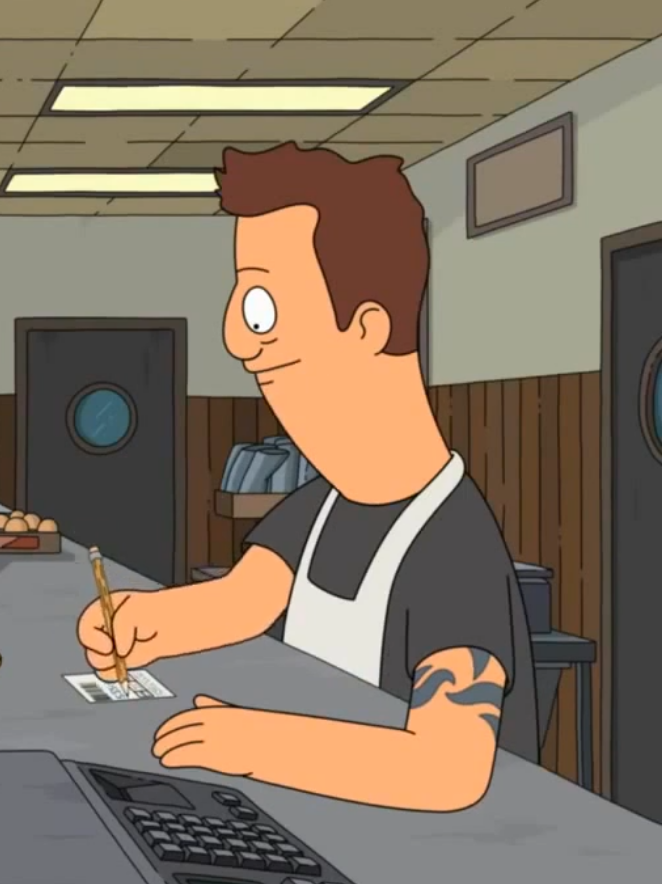
If you know, you know…
When a Synthetic Parent is Better than Today's Republican
No Lies Detected
Classic Hollywood Squares
Name that Show
Dare I Say…
That this particular performance by The Three Degrees of their 1979 hit, The Runner, written by Giorgio Moroder…
Reminds me way too much of this?

The 3-hour premier episode of Battlestar Galactica, in which this appeared, debuted in September 1978. The Three Degrees released The Runner on the LP New Dimensions, a month later in October.
Just Sayin…
Gutted
A few weeks ago, since most of our current favorite shows were on hiatus, we were searching for something new to watch to fill our evenings. We started on Babylon 5, a show I warmly remember from the late 90s that my roommate in San Francisco and I used to enjoy together. It seemed that my memories were tempered; twenty five years later and the show—while still decent—was obviously plagued by a multitude of sins, not the least of which being the cheesy visual effects and the overly harsh lighting in nearly every scene. I mean, the premise of the show was good—and I remember it actually getting better as the years progressed—but we couldn't even make it through the first season before giving up and moving on.
Thinking about other shows from the past that might be worth revisiting, we remembered that Fringe had been one of our favorites. We found all five seasons streaming on HBO+.
A full decade has passed since the show last aired, so my memories of the story line were occasionally hazy or at times outright misremembered, but I have to say that after we wrapped up the five seasons last night, I was just as gutted by the end of it as I had been those many years ago. And while the writers did wrap everything up (unlike certain other shows in this genre, cough, Westworld, cough) by the final episode, I had become so invested in the characters and their stories that it still left me wanting more.
The ensemble cast is top notch and the series has its moments of fun and laugh-out-loud frivolity (the character of Walter brings much-needed comic relief when things get too heavy)…
…but overall I think it's a serious and oftentimes—sad—story. It addresses love, family, loyalty, separation, and forces you to ponder the really big questions of life: why we're here and whether or not there is something more out there. Fringe is one of those shows that stays with you long after the final note of the final closing credits ends. But maybe I'm just listening to the soundtrack as I write this and it's causing me to wax poetic. Or maybe I'm simply biased because I'm an inveterate nerd, and so many of the themes (whether it's alternate universes, time travel, or the horror of a being trapped in a ruthless totalitarian society) resonate with me on a fundamental level.
Have I mentioned Joshua Jackson's awesome perma-scruff?
Quite surprisingly, it appears Fringe is enjoying a bit of a renaissance on HBO+ due to Anna Torv's appearance in The Last of Us. (A show we're just starting.) Coming fresh off Fringe, while watching the first episode of The Last of Us, I couldn't help thinking that this was just yet another alternate universe that Olivia has somehow gotten herself trapped in…
If You Haven't Seen It Yet…
DO IT.
I'll admit I'm late to this party.
I've have seen two series in the past couple months that absolutely left me gutted. This is one of them. The other was American Horror Story: NYC. For those of us of a certain age…these two series reflected our lives, albeit in two very different ways. AHS focused on the terror; It's a Sin not only gave us the unspoken uncertainty swirling about our daily lives, the discrimination we faced, and the abject sorrow of the late 80s and 90s, but also embraced the unbridled joy before the plague. Memories I thought I had safely sequestered to the back of my mind came rushing forward in a way I never expected. Tears of joy and tears of sadness streamed down my cheeks. Far too many scenes that perfectly mirrored actual events in my life and the lives of those around me.
And in what has to be a first for a historical drama, with only one exception It's a Sin got the music down pat. Not only were the songs used in the soundtrack musically accurate by year, but also by season. Someone in the production was paying attention.
You Guys…
I Am Probably Going to Hell for Reposting This
Don't Be Surprised…
? ? ?
Yes, But…
? ? ?
Oh Misha…
And That's a Wrap
I only read Philip Pullman's amazing trilogy, His Dark Materials, in 2003 at the recommendation of a friend. I'd never heard of it prior to this, and yet it is a story that has stayed with me for the last twenty years. While undergoing cancer treatment that summer, I spent many a sleepless night glued to the pages of the books, mesmerized by the story unfolding before me.
Billed as "young adult" fiction, it is anything but.
When, several years later, I caught word of the story being made into a series of feature-length films, I was of course, elated. After seeing the first installment, The Golden Compass, however, and then learning that the studio would be going no further, I was understandably heartbroken. While I enjoyed The Golden Compass, I didn't appreciate how the film so abruptly ended—especially when that ending was not true to the original source material whatsoever and left the audience hanging.
Pullman's story seemed—much like Dune—unfilmable. Unlike Dune, however, where the novel contained so much internal dialog to make filming difficult, His Dark Materials—and especially the final book in the trilogy, the Amber Spyglass—contained ideas that skittish Hollywood executives would probably rather not address. (Never mind the plethora of daemons, angels, talking polar bears and Mulefa.)
And much like with Dune, I gave up all hope of ever seeing a faithful on-screen representation of Pullman's books.
All that changed when HBO released the first season of His Dark Materials, aka The Golden Compass, in November 2019, with news that the second book/season, The Subtle Knife would follow at the end of 2020.
And then the pandemic hit, and the fate of the most controversial book of the series, The Amber Spyglass, hung in the balance.
I was both surprised and delighted to learn a few months ago that yes, The Amber Spyglass had been in production post-pandemic and was wrapping up with a release date of December 2022. Time to fire up the HBO subscription again!
From Mashable (because I couldn't have said it better myself):
Philip Pullman's novel The Amber Spyglass finally gets an on-screen adaptation with Season 3 of His Dark Materials, and what a heartbreaking, gorgeous adaptation it is.
Easily the most ambitious and most fantastic of Pullman's trilogy, The Amber Spyglass gives this final season of His Dark Materials a lot to work with: the land of the dead, teeny tiny spies, rollerskating elephant creatures, and more. On top of all that, the novel concludes Pullman's re-interpretation of John Milton's Paradise Lost, meaning we get some pretty intense discussion of free will and individuality in the face of religious oppression. Yes, that includes the "let's kill God" plotline.
Luckily for fans of Pullman's books, His Dark Materials does not water down the novels' thematic content, nor does it stray away from the stranger aspects of its fantasy worlds. The season, while not without its own flaws, proves to be a rewarding finish to a solid show that tended to be overlooked in a crowded fantasy TV landscape.
Season 3 of His Dark Materials brings us to new and exciting worlds.

At the start of Season 3 of His Dark Materials, our characters are scattered. Lyra (Dafne Keen) is in the clutches of her mother Mrs. Coulter (Ruth Wilson), who keeps her asleep as a twisted form of protection from the evil Magisterium. In her dreams, she sees her late friend Roger (Lewin Lloyd), who calls for help from the land of the dead. Meanwhile, Will (Amir Wilson) uses the Subtle Knife to search for Lyra across worlds, and Dr. Mary Malone (Simone Kirby) ventures into a new realm where she'll make unexpected friends. Then there's the not-so-small matter of Lord Asriel's (James McAvoy) final assault against the Authority, which will unite angels, witches, and humans.
The sprawling scope of the season gives us several new fantasy locations to enjoy, from Asriel's bustling battle camp to the austere yet grand kingdom of heaven. Two worlds in particular stand out: the land of the dead, with its fascinating industrial feel and terrifying harpy guardians; and the world Mary stumbles into, a lush paradise populated by the elephant-esque Mulefa. That's right, book fans: We finally get to see the Mulefa and their seedpod wheels. Rejoice!
His Dark Materials Season 3 goes out with a bang — and a lot of tears.

In what felt like a gamble to be more like Game of Thrones, the first two seasons of His Dark Materials chose to split time more evenly between Lyra and other characters, like Mrs. Coulter and Lord Asriel. As a result, the show could sometimes feel like it was treading water. Characters in non-Lyra and Will storylines spent a lot of time having Big Important Discussions about Dust and prophecies, but these were often redundant and drew focus from Lyra and Will's compelling journey.
With Season 3, however, most of these stories get the opportunity to go full speed ahead. Now, Asriel—who was absent from Season 2 due to COVID-19 shooting complications—rallies his troops, and Mrs. Coulter reckons with her love for Lyra. When the two cross paths, it's like lightning in a bottle. McAvoy and Wilson play the layers of Asriel and Coulter's relationship with a perfect mix of love, hate, and ambition, creating a push and pull throughout the season that will keep you guessing. And of course, the much-discussed rebellion against the Authority finally gets its appropriately epic payoff as His Dark Materials concludes.
Unfortunately, His Dark Materials does not completely fix its pacing problems in Season 3. I say only "most" of the stories get more interesting because the Magisterium scenes are still a slog to get through. The introduction of fanatic Father Gomez (Jamie Ward) does bring our villains in a slightly more dynamic direction, but the constant returns to the Magisterium pull time away from stories that deserve far more of our attention. The main victim here is Mary Malone. His Dark Materials sprints through her time spent with the Mulefa (and the construction of a certain spyglass), touching on key plot points but never letting us truly sink into the world of the Mulefa. It's both a shame and a missed chance, since passages involving Mary and the Mulefa are among the most memorable from The Amber Spyglass.
The Mulefa and the Land of the Dad were honestly the only parts of the story I remembered after 20 years.
Mashable continues:
As with the rest of His Dark Materials, Season 3 most comes to life when it focuses on the relationship at the heart of the show, that between Lyra and Will. While a divine war wages around them, their main focus is helping each other accomplish their goals—be that finding Roger or bringing the Subtle Knife to Lord Asriel. Keen and Wilson continue to have excellent chemistry, grounding each other amidst a sea of lofty fantasy set pieces and cementing themselves as young performers to watch. It's their scenes that pack the biggest emotional punches this season. A heart-wrenching conversation between Lyra and her daemon Pantalaimon (voiced by Heartstopper's Kit Connor) reduced me to tears for a good ten minutes straight, while the journey to the land of the dead is a quietly moving rumination on the beauty of life's small truths.
Let's talk about the elephant in the room… or, rather, the Mulefa.
From EW:
His Dark Materials is bringing one of its most complex creatures to life with the third and final season: the Mulefa, sentient beings with trunks that dwell in one of the alternate dimensions of the show's multiverse.
Executive producer Jane Tranter discusses how the crew adapted them from book to screen for the first time. "We'd talked about it a lot because it was what we were frightened of," Tranter says. "We would address the Mulefa in the room, if you like, constantly."
Based on The Amber Spyglass, the third installment of author Philip Pullman's Dark Materials trilogy of books, season 3 of the fantasy drama opens up the multiverse to even more parallel worlds as Lord Asriel (the returning James McAvoy) assembles an army to wage war against the Authority and the kingdom of heaven. As Lyra (Dafne Keen), the prophesied child, and Will (Amir Wilson), the bearer of the Subtle Knife, travel to the Land of the Dead, Dr. Mary Malone (Simone Kirby) will go to the home of the Mulefa where she'll make startling discoveries about Dust.
The Mulefa are rather unique creatures, even more so than the angels and insect-riding Gallivespians audiences will meet over the course of the season. Pullman describes them in The Amber Spyglass as spineless creatures with trunks, and spurs for feet. They move about by inserting those spurs into disc-shaped seedpods and roll along tracks dug into the ground:
The Mulefa of His Dark Materials are slightly different. We will see them move both with and without their seedpod wheels.
"Philip Pullman is so generous with us, both in terms of what we actually physically just can't do and also what we need to do in order to help contextualize for an audience what's going on," Tranter says. "His narrating voice would supply that information, and we have to dramatize it in some way. But every now and again, he's clear about what a red line is."
The red line with the Mulefa was that they have to travel on seedpods. "I thought, 'Is that gonna look a bit rubbish [on screen]?' And he was like, 'Yes, they do!'" Tranter recalls. No matter how ridiculous it might sound, it's a visual representation of the symbiotic connection the Mulefa have to the world around them. "It is like a paradise world where the environment, the landscape, and the beings who live in it all live in perfect harmony," she continues. "So there are tracks, for example, all the way through the world of the Mulefa, and those tracks are there because the Mulefa have made them riding along on their seedpods, but they exist for each other."
Then came the language. Mulefa have their own means of communication, through sounds and sign language with their trunks. Tranter and her team used the form of the Mulefa—not quite elephant, not quite zebra, not quite horse—to dictate their sound, one that the character of Mary would be able to learn herself and understand. That entailed enlisting a language expert to create the Mulefa's means of communication.
"We knew that the Mulefa needed to be immediately beautiful and immediately appealing and immediately not scary," Tranter notes. "They're strange for sure. Mary hasn't seen anything like them and the landscape in which they live with these massive, massive, massive trees the size of skyscrapers."
At this point, Kirby is now fluent in Mulefa, Tranter says: "She can put it on her resume."
I found the series immensely satisfying. Did it do full justice to Pullman's work? I would have to say yes. To be honest, at first I didn't particularly care for either James McAvoy as Asriel or Ruth Wilson as Marissa Coulter (I felt Daniel Craig and Nicole Kidman personified those characters to a tee), but over the course of the series they grew on me, particularly Ruth Wilson. I applaud that HBO did not shy away from the "killing God" aspect of the story—or even bringing the two gay angels to the screen. There were parts of the last season that seemed a bit rushed (particularly Mary's time with the Mulefa), but that's the extent of my quibbles.
I read that some fans are upset that there are no more scheduled seasons, but to them I say, "What would these additional seasons be? While there are other, post Materials books in Pullman's universe, His Dark Materials itself was a trilogy, and the story ended. Get over yourselves."
If you're a fan of the books and somehow haven't seen this production, do yourself a favor and seek it out. The first two seasons are available on DVD so you don't need a subscription to HBO, and I'm sure this final season will be available on disc shortly.
Wait…Wut?
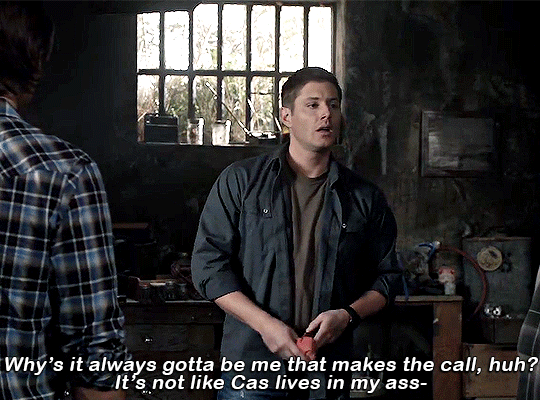
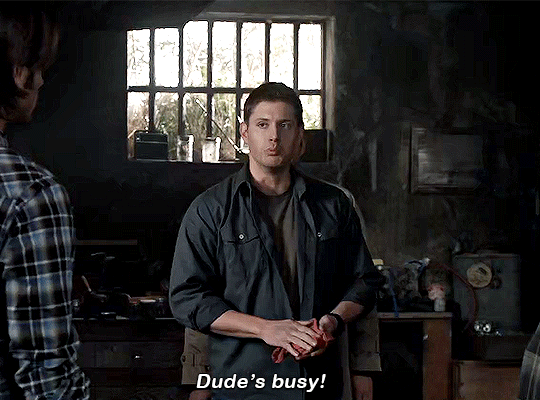
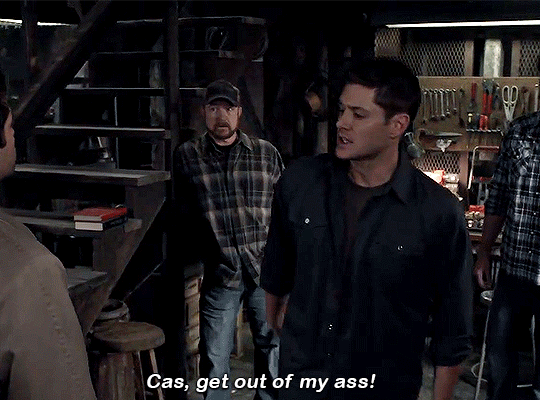
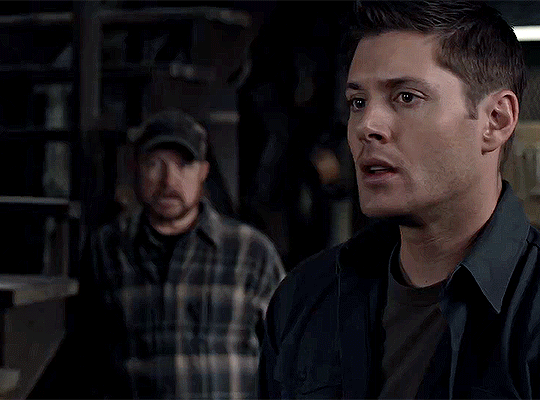
Hmmm…
Season 2 is sure to be interesting!
Happy Holidays
? ? ?
BURN!
There Will Be No Final Season ?
This is sad, although not entirely surprising. Thankfully the 4th season and its final episode did wrap up the story to a degree (and in my opinion got its footing back after a lackluster 3rd season) that one can walk away from it with a certain degree of satisfaction. The story wasn't over, but it was an ending we can live with, still leaving the door open to something further (see: The Expanse)
The questions of consciousness and free will that were explored in the first two seasons are ones that will stay with me forever. To this day I cannot listen to Dr. Ford from the soundtrack and not get a little misty eyed, contemplating everything he was attempting to accomplish and how it all went so horribly, horribly wrong.













































